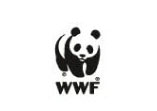World Wildlife Fund Canada
STAR RATINGCi's Star Rating is calculated based on the following independent metrics: |
✔+
FINANCIAL TRANSPARENCY
Audited financial statements for current and previous years available on the charity’s website.
A-
RESULTS REPORTING
Grade based on the charity's public reporting of the work it does and the results it achieves.
n/r
DEMONSTRATED IMPACT
The demonstrated impact per dollar Ci calculates from available program information.
NEED FOR FUNDING
Charity's cash and investments (funding reserves) relative to how much it spends on programs in most recent year.
67%
CENTS TO THE CAUSE
For a dollar donated, after overhead costs of fundraising and admin/management (excluding surplus) 67 cents are available for programs.
My anchor
OVERVIEW
About World Wildlife Fund Canada:
World Wildlife Fund Canada is a 4-star charity. It has an A- Results Reporting grade, which is above average. The charity holds reserves within Ci's reasonable range. For every dollar donated to World Wildlife Fund Canada, 67 cents are available to go to the cause.
Founded in 1967, World Wildlife Fund Canada (WWFC) works to conserve species at risk, protect threatened habitats, and address climate change. It combines scientific analysis and Indigenous knowledge in its approach. It aims to create a world where people and nature thrive. The charity breaks down its spending across three main programs: Conservation Program Implementation, Raising Awareness, and Research and Grants. In F2024, WWFC spent $23.0m on its programs and grants.
Conservation Program Implementation represented 63% ($14.5m) of program costs in F2024. WWFC reports that populations of at-risk species have declined by 59% on average since 1970. It also reports that uncontained climate change will melt Arctic Sea ice by as early as 2035. In F2024, WWFC planted 41,015,986 seeds and 1,057,032 plants. WWFC engaged 21,872 people in conservation training or other conservation activities. WWFC tracked 1,238,341 conservation actions (signing petitions, participating in training, submitting data, and engaging in restoration activities) in F2024.
Raising Awareness represented 26% ($5.9m) of program costs in F2024. WWFC runs programs and events to engage the public in sustainability-related issues. In F2024, the charity acquired 11,359 signatures for its petitions. WWFC reports that over 10,000 people joined WWFC to advocate to the government to deliver a strong action plan to protect whales, walruses, and other sea life from underwater noise pollution.
Research and Grants represented 11% ($2.6m) of program costs in F2024. WWFC provides grants to charities, Indigenous organizations, conservation groups, and its international brand (World Wildlife Fund, located in Switzerland). The charity’s Nature and Climate Grant Program (NCGP) sent grants to six organizations to restore habitats for biodiversity. Since the program began in 2021, NCGP participants restored over 702 hectares of degraded lands and water, improving the habitats of over 57 at-risk species. This has also mitigated flood risk on 26,800 hectares of land.
My anchor
Results and Impact
Conservation Program Implementation:
World Wildlife Fund Canada’s goals for 2030 are to restore 1 million hectares of degraded habitats, steward 100 million hectares of vital ecosystems for wildlife fund communities, and reduce carbon emissions by 30 million tonnes.
Since founding, WWFC has restored 86,671 hectares of degraded habitat, stewarded 123,396,400 hectares of land, and reduced carbon emissions by 20.0 million tonnes.
Raising Awareness:
After advocating to the Canadian government, it released a draft strategy paper on how the government will protect whales, walruses, and other sea life from underwater noise pollution.
In fall 2023, the Supreme Court of Canada ruled that parts of the federal environmental Impact Assessment Act were unconstitutional. WWFC intervened before the court and emphasized the importance of federal involvement and accountability regarding biodiversity loss. After, the court gave direction on changes needed to the legislation that will protect nature, people, and provincial jurisdictions.
Research and Grants:
Since 2021, NCGP participants restored over 702 hectares of degraded lands and water, improving the habitats of over 57 at-risk species.
While Ci highlights these key results, they may not be a complete representation of World Wildlife Fund Canada’s results and impact.
This charity is not yet rated on impact. This shows as n/r and does not affect its star rating.
My anchor
Finances
World Wildlife Fund Canada uses activity-based costing. This is a best practice.
World Wildlife Fund Canada received $27.2m in donations and $2.6m in government funding. The charity spent $23.0m on its programs, which is 68% of revenue. WWFC recorded a surplus of $1.8m, which is 5% of revenue.
WWFC spent $7.5m on fundraising, which is 27% of donations, and $1.7m on administration, which is 6% of revenue (excluding investment income). Total overhead spending is 33%. For every dollar donated to WWFC, 67 cents are available to go to the cause, which is within Ci’s reasonable range.
WWFC has $39.4m in reserve funds (cash and investments), of which $5.8m is donor endowed. Excluding donor-endowed funds, the charity’s reserves can cover almost 1 year and 6 months of its annual program costs. This is within Ci’s reasonable range.
World Wildlife Fund uses external fundraisers. In F2024, WWFC paid fundraisers $967k to collect $2.3m. In F2024, it cost 43 cents to raise a dollar through external fundraisers. It is likely more cost efficient to donate directly to the charity.
This charity report is an update that has been sent to World Wildlife Fund Canada.
Updated on June 10, 2025 by Liam Chapleau.
Financial Review
Fiscal year ending June
|
2024 | 2023 | 2022 |
|---|---|---|---|
| Administrative costs as % of revenues | 5.5% | 4.8% | 3.6% |
| Fundraising costs as % of donations | 27.4% | 27.2% | 21.3% |
| Total overhead spending | 32.9% | 32.0% | 24.9% |
| Program cost coverage (%) | 147.7% | 152.1% | 150.5% |
Summary Financial StatementsAll figures in $000s |
2024 | 2023 | 2022 |
|---|---|---|---|
| Donations | 27,229 | 23,692 | 25,803 |
| Government funding | 2,598 | 1,624 | 2,953 |
| Business activities (net) | 854 | 852 | 961 |
| Investment income | 2,569 | 3,884 | (2,309) |
| Other income | 763 | 834 | 432 |
| Total revenues | 34,013 | 30,886 | 27,840 |
| Program costs | 20,399 | 17,059 | 16,278 |
| Grants | 2,631 | 3,443 | 3,175 |
| Administrative costs | 1,738 | 1,308 | 1,095 |
| Fundraising costs | 7,464 | 6,440 | 5,482 |
| Total spending | 32,232 | 28,250 | 26,030 |
| Cash flow from operations | 1,781 | 2,636 | 1,810 |
| Capital spending | 108 | 147 | 196 |
| Funding reserves | 39,441 | 36,421 | 33,924 |
Note: 1. Revenue Below-the-Line: Ci included unrealized gains within investment income. This was $775k in F2024, $1.6m in F2023, and ($3.8m) in F2022.
Salary Information
$350k + |
0 |
$300k - $350k |
0 |
$250k - $300k |
1 |
$200k - $250k |
3 |
$160k - $200k |
5 |
$120k - $160k |
1 |
$80k - $120k |
0 |
$40k - $80k |
0 |
< $40k |
0 |
Information from most recent CRA Charities Directorate filings for F2024





 Help us do better work for you! Please fill out our 2025 Visitor survey.
Help us do better work for you! Please fill out our 2025 Visitor survey.
My anchor
Comments & Contact
Comments added by the Charity:
The following comments were added on August 22, 2025:
As one of the country’s largest conservation organizations, World Wildlife Fund Canada has worked for more than 50 years to advance on-the-ground conservation efforts in Canada alongside the support of a global network operating across 100 countries. At WWF-Canada, our long-term vision is simple: a Canada with abundant wildlife, where nature and people thrive.
Realizing this vision means taking action now — but it also means ensuring that our efforts today have an impact that lasts.
We are now four years into Regenerate Canada, our 10-year plan to fight the dual crises of biodiversity loss and climate change with one of the best tools around: nature. We continue to steward, restore and protect ecosystems that provide habitat for wildlife and sequester carbon — ensuring species at risk can recover while reducing harmful carbon emissions. Drawing on scientific research and Indigenous guidance, our conservation work drives towards three goals:
FINANCIAL STEWARDSHIP
Financial stewardship is key to achieving our conservation goals and fulfilling donor expectations. To do that, we ensure we have a strong internal control environment, effective governance over all operations and an annual independent audit of our financial records.
In the fiscal year 2024 (July 2023 to June 2024), we were able to invest in our mission to Regenerate Canada while keeping administrative costs fiscally responsible — for every dollar spent, 71 cents went directly to conservation efforts.* During this period, we invested $23 million in our conservation work and $9.2 million in fundraising and administration. We also had a record-breaking year for fundraising, raising $33 million (up from $29 million in fiscal year 2023).
*WWF-Canada’s reported spending ratio is calculated as a percentage of total expenditure.
FOUR YEARS OF REGENERATE CANADA
Since launching our 10-year Regenerate Canada plan, our mission has not wavered: we remain all in on our goals to reverse wildlife loss and fight climate change with nature. We know restoration takes patience, stewardship takes collaboration, reducing carbon emissions takes co-ordination, and all of it takes time. That’s why it’s important to reflect regularly on each year’s efforts and evaluate what has been achieved with science, research, partnerships and respect for Indigenous guidance underpinning our conservation work.
Donor support is a big part of what makes our past work possible and our vision for the future probable. Together, we will reverse what once seemed irreversible to create a Canada with abundant wildlife and to protect the future of that abundance.
Here are some of the ways WWF-Canada’s work — and the incredible support of our donors — helped to Regenerate Canada in the past year.
To date, we’ve seen some incredible results toward our core goals.
ACHIEVED AND IN PROGRESS:
During fiscal year 2024, we also achieved these big wins:
Conservation success doesn’t happen overnight — it’s the result of years of collaboration and dedication. Thanks to the unwavering support of our donors and partners, we’re able to pursue lasting solutions to some of nature’s most pressing challenges.
In addition to our annual report, we keep our donors informed on their efforts to help nature and people thrive through our Fieldnotes newsletter, Living Planet magazine, blogs, social media, stewardship reports and an annual donor appreciation event.
Charity Contact
This email address is being protected from spambots. You need JavaScript enabled to view it. Tel: 416-489-8800